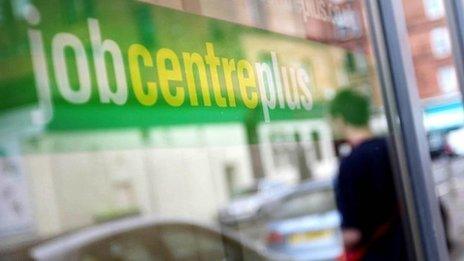Self-employed ranks boosted by older workers
- Published
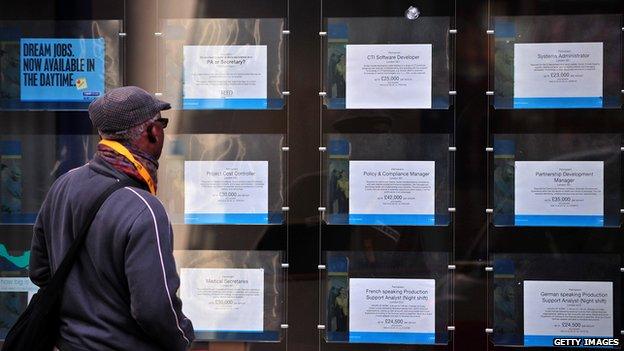
Many people stay self-employed because they cannot find work elsewhere, says Jamie Jenkins of the ONS
People working beyond the retirement age are boosting the ranks of the self-employed to its highest rate in 40 years, a labour market expert has said.
In Wales self-employment has risen since the economic downturn from 13.2% in 2008 to 14.1% in 2013.
Jamie Jenkins of the Office for National Statistics (ONS) said the number of people working for themselves after 65 had doubled in five years.
Fewer people were leaving self-employment to work for others, he said.
The self-employed account for three-quarters of the increase in employment seen in the last six years since the financial crisis.
They are likely to keep working until they are older than people who work for someone else and have also seen wages fall significantly in recent years.
On the plus side, self-employed people say they have more control over their lives, but the negatives often include long hours and the difficulty of switching off.
Sam Mackenzie-Grieve, who set up MG's coffee bar in Aberystwyth 10 years ago, said: "It's incredibly difficult to be self-employed particularly in our industry, the service industry.
"I try to be positive. For me the positive things are my lovely staff and my great customers - they keep me going."
Sam Mackenzie-Grieve runs her own business in Aberystwyth and says being self employed is hard
But she said working six days a week is not easy.
"It's the physical [thing] of being here at work, then you go home and there's stuff to do at home, then there's the books," she said.
"When you run your own business you hire, you fire, you do the marketing, you do the accounting, you do everything.
"It literally comes home with you, and it's with you all the time."
Earning less
The latest ONS figures show there are now 192,000 people in Wales working for themselves, 17,000 more than in 2008.
Incomes for self-employed people have fallen by 22% in the six years since the financial crisis began and are on average £207 a week compared with an average of £474 for employed people.
On average one in seven of the Welsh workforce work for themselves, but the rate varies from a high of around 27% in the rural counties of Powys and Ceredigion to less than 10% in areas like Blaenau Gwent and Torfaen, historically dominated by heavy industry.
Jamie Jenkins, labour market analyst for the ONS, said: "Since the economic downturn in 2008 we've seen more and more people that are self-employed.
"But the rate that people are joining self-employment hasn't really changed over the last five or six years. It's actually the rate of people leaving self-employment that has gone down quite dramatically.
"Fewer people are leaving because it's more difficult to find a job with a company but also the number of people who are working beyond 65 has more than doubled over the last five years in terms of self-employment.
"So people are staying on in work beyond the retirement age."
John O'Hagan, 68, has worked for himself driving taxis in Cardiff for 26 years.
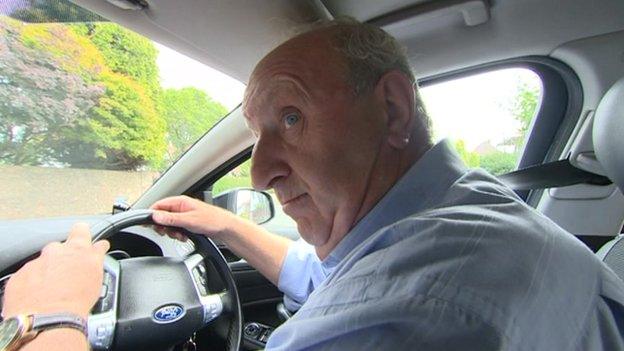
Taxi driver John O'Hagan enjoys being his own boss and has no plans to retire
He can take a day off whenever he likes but there is no paid leave, sick pay or company pension.
"I don't want to retire - that's the simple answer," he said.
"There's no employed taxi drivers now that I know of - it used to be £2 an hour and 10% of the take ... that was the wages."
He likes the freedom of working for himself.
"If I don't want to work, I don't work. I work as long or as short as I want to," he said.
"I work about 30 to 35 hours a week - at the average taxi firm I reckon they work about 60 to 80 hours."
- Published20 August 2014
.jpg)
- Published11 June 2014
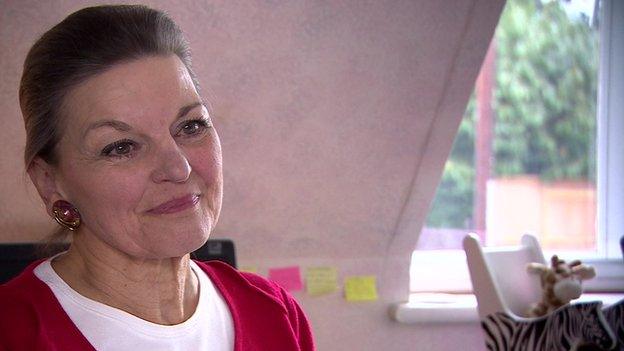
- Published6 May 2014

- Published19 February 2014
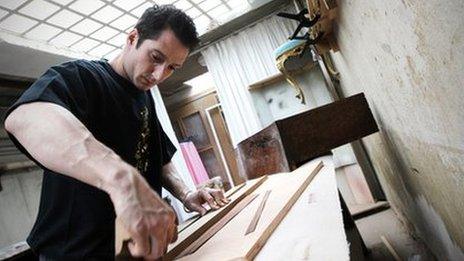
- Published6 February 2013

- Published3 February 2013
